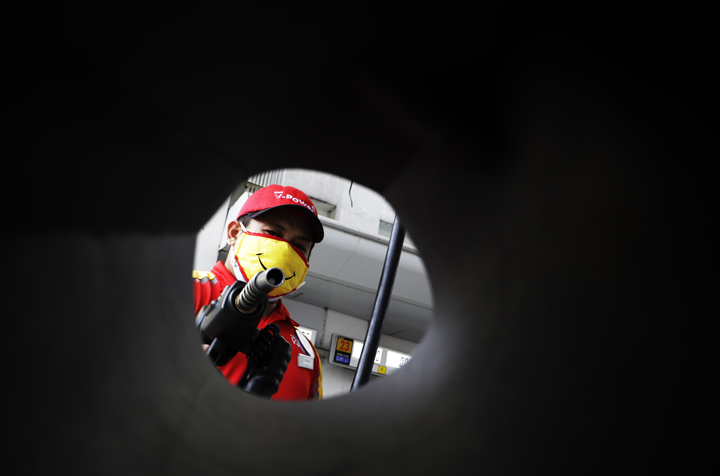
FOLLOWING a continuous increase in prices over eight weeks, another lawmaker has filed a resolution suspending the excise tax for fuel and petroleum products under the TRAIN law or Republic Act 10963.
A senior House leader, however, called the “politically expedient solution” of suspending or cutting a fiscally unwise option that derails the budgets for the next two years at a time when the country, still in recovery mode, needs the P100-billion yearly excise tax collection.
In his House Resolution 2320, Baguio City Rep. Mark Go urged President Duterte to immediately suspend the excise tax until fuel and petroleum prices stabilize and return to their August 2021 level.
Under the TRAIN law, the excise tax on all petroleum products, including oil and fuel, will increase based on a staggered schedule from 2018 to 2020.
He said fuel and petroleum prices have steadily risen for nine weeks straight since August 31, adding up to P8.40 per liter in gasoline, P9.15 per liter in diesel, and P8.65 in kerosene.
The relentless hikes have resulted in high fuel prices across the country, Go said.
“In Northern Luzon, particularly in Baguio City, the average new price per liter of unleaded gasoline is P68.75 and diesel at P54.16,” the lawmaker said.
He said similar prices have been observed in different regions, saying in Metro Manila (City of Manila), unleaded gasoline is sold at P67.50 per liter and diesel at P54.52, while unleaded gasoline in Southern Luzon (Legazpi City) costs P64.38 per liter and diesel at P52.56 per liter.
In Visayas (Cebu City) and Mindanao (Zamboanga City), unleaded gasoline is as high as P65.24 and P67.59, while diesel costs P56.65 and P61.92 in each area, respectively.
Go argued that the exorbitant fuel prices and the increased cost of other basic goods will double the strain on Filipinos who have lost their jobs in the pandemic.
He said suspension of excise taxes on fuel and petroleum wil lessen the burden and financial strain on families and marginalized sectors amid the ongoing Covid-19 pandemic.
The Makabayan had earlier filed similar measures calling for excise tax supension on the said products.
Mixed alternative
For her part, however, Deputy Speaker Bernadette Herrera said suspending or trimming that excise tax even for just three months would be fiscally unwise and possibly economically disastrous, given the fact there is no international oil crisis now, nor is one expected in the months ahead.
“I disagree with the politically expedient solution of either suspending or trimming the excise tax on petroleum,” she said.
“Perhaps, unknown to the presidential candidates is the fact that our national government budgets this 2021, 2022, and 2023 would be dependent on the approximately P100 billion per year in excise tax on petroleum,” she added.
Instead of holding in abeyance or shaving part of that excise tax on petroleum, Herrera said the more prudent solution is a combination of fixes that improves supply flows, increases local buffer stocks, removes customs fees and hauling charges, and issues purchase discount vouchers to the poor and low income consumers.
“The TRAIN Law has several safety net provisions which can be used to cushion consumer price increases. Suspending or trimming the excise tax should be considered a last resort under economic emergency situations,” she said.
Also, she said the new Pantawid Pasada program should be expanded to include commuter tricycles and “last mile” freight forwarders.
“The P1-billion budget the DBCC recently gave for PUJ drivers driving legit PUJ units is only about P5,000 per driver for the 178,000 drivers,” she said.
Another P2 billion should be added to Pantawid Pasada and LTFRB should urgently implement a conditional amnesty program—conditional because the PUJ units must pass roadworthiness and anti-smoke belching checks or be exchanged for new units under the PUJ modernization program, she added.
According to Herrera, there should also be a Pantawid Kuryente program for households consuming up to 200 kwh/month.
“For the long term, a combination of wind and solar solutions, a strategic national fuel reserve and a modified oil price stabilization fund would be a much better solution than removing the excise tax on fuel and building and operating nuclear power plants,” she said.
Image courtesy of Nonie Reyes

